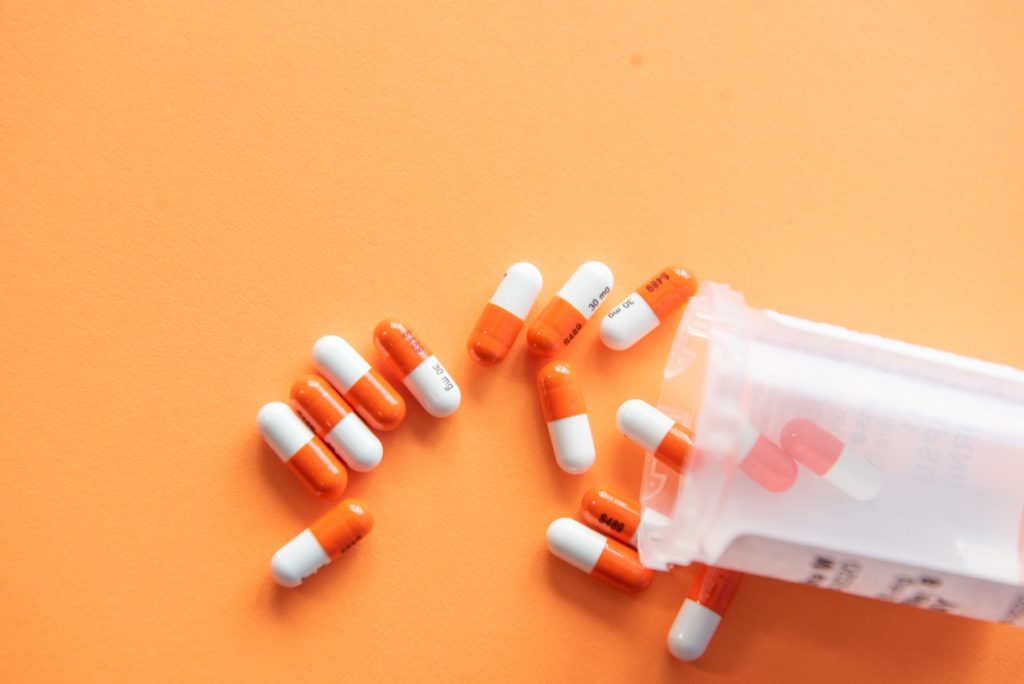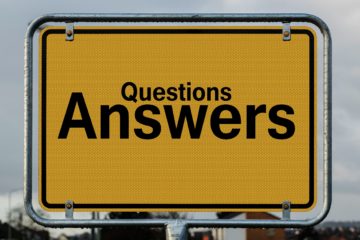Every Pharmacy Fresher reconciles with interviews that make them anxious especially if it’s their first one. Consequently, like mock test papers for exams, the Top 20 Interview Questions and Answers for Pharmacy students are helpful.
That is to say, most students take recourse to them but know little about the best way to answer such questions. As a result, many fumbles and get nervous during interviews. However, it adds to their troubles so several students look for desperate means to crack interviews.
So, here is a guide for the Top 20 Interview Questions and Answers for Pharmacy Freshers for your next interview!

Guide to the Top 20 Interview Questions and Answers for Pharmacy stream:
Follow this sample guide for answering the Top 20 Interview Questions and Answers for Pharmacy students. This section talks about the following types of Pharmacy disciplines:
To clarify, these questions are for the Pharmacy stream but also relevant for other streams. Above all, every Fresher should be original and authentic during interviews. Most importantly, these sample answers will help you get started but do not memorize them. Let’s take the deep dive into the Top 20 Interview Questions and Answers for Pharmacy students:
1. What are the responsibilities of a Pharmacist?
A: The responsibilities of a Pharmacist include:
- Manage drug stores
- Advising patients and Physicians
- Verifying prescription accuracy
- Reviewing possible side effects
- Assigning dosages
- Recommending appropriate non-prescription drugs
- Providing information to patients about drug interactions
2. What are the three qualities every professional Pharmacist should have?
A: The 3 essential qualities of a professional Pharmacist are:
- Drug Management
- Customer Management
- Staff Management
3. What are some of the side effects of Methadone?
A: The side effects of Methadone are:
- Anxiousness, and restlessness
- Insomnia (sleeping disorder)
- Drowsiness and weakness
- Nausea, vomiting, diarrhea
- Constipation and loss of appetite
- Dry mouth and impotence
4. What are some of the classifications of Controlled Drugs?
A: Controlled Drugs are of the following five types of classifications:
- Schedule Type 1
- Type 2 Schedule
- Schedule type 3
- Type 4 Schedule
- Schedule 5
5. What are the storage procedures for Controlled Drugs?
A: Controlled Drugs, should be stored in a closed cabinet made up of metal with an attached lock. Only authorized personnel can access it and administer a Controlled Drug. For home visits, Doctors should carry Controlled Drugs in a lockable bag.
6. Are Pharmacists allowed to give prescription copies?
A: Yes, a Pharmacist can give a prescription copy but only for informational purposes. A Pharmacist cannot dispense drugs from prescription copies. They can contact Doctors to provide new prescriptions. However, if patients lose their prescription, it should similarly match the prescription copy.
7. What Is Warfarin and what are some of the drugs that it is not mixed with?
A: Warfarin is a drug used as an anticoagulant. It’s used for patients who are at high risk of heart attack due to blood clotting.
Some of the drugs with which it interacts and should not get mixed with are:
- Aspirin
- Clopidogrel
- Danaparoid
- Dipyridamole
- LMWHs
- NSAIDs
- Ticlopidine
- Unfractionated Heparin
8. Why do Doctors prescribe Antibiotics for viral infections instead of antiviral drugs?
A: Doctors prescribe Antibiotics without tests because many infectious diseases are due to Antibiotics. Moreover, though Antibiotics are less effective on viral infections.
However, it has fewer side effects and more spectrum compared to Antiviral Drugs. Antiviral drugs have a narrow spectrum. Therefore, they are effective on limited viruses. So, only in serious conditions, are Antiviral Drugs prescribed.
9. What is the meaning of NABP?
A: NABP is an Electronic Licensure Transfer Program. It allows Pharmacists to transfer their Pharmacist licence from one state to another. Hence, Pharmacists can easily with ease and flexibility.
10. Can a Controlled Substance prescription get refilled?
A: Controlled Substance prescriptions can get refilled up to five times in six months. Controlled Drugs Substance Schedule type V can get refilled as directed by Physicians. However, Schedule Type II can’t be refilled.
11. How can Pharmacists help patients with Asthma?
A: Pharmacists aid patients with Asthma by making them aware of Asthma treatments like:
- Trigger management
- Role of Controlled medications
- Role of Rescue medications
- Early detection of disease
12. What is a Peak Flow Meter?
A: Peak Flow Meter is a cheap device used for assessing a patient’s current asthma control. It helps patients to monitor their Asthma level and severity. Further, it can measure the peak expiratory flow (PEF) rate.
13. What Is NCPDP?
A: NCPDP is the National Council for Prescription Drug Program. To start a registered Pharmacy store, Pharmacists sign up with NCPDP. It is a database service that allows billing and issues a unique number to each pharmacy product.
Additionally, it identifies a uniform purchase value. Peak Flow Meter is a cheap device used for assessing a patient’s current asthma control. It helps patients to monitor their Asthma level and severity. It measures the peak expiratory flow (PEF) rate.
14. Why is Pharmacist insurance important?
A: In case of critical situations, Doctors get sued by patients. But there are chances that even Pharmacists get dragged into the process. So, Pharmacist insurance helps them pay for legal defence. Moreover, it can protect Pharmacist license rights.
15. What is the meaning of PBM?
A: PBM stands for Pharmacy Benefits Manager or Third Party Administrators of Drug Programs. However, they also service integrated healthcare systems. PBM handles processing and paying prescription drug dues.
16. What will you do if a customer asks about an over-the-counter drug?
A: The question is seldom asked to test your research skills. It also gives an impression of your communication skills and customer service abilities.
So, if a customer asks about a drug you’re unfamiliar with, be honest and transparent. Additionally, inquire with team members if they are familiar with the medication. However, if they are not, tell the customer you will research the drug and follow up with them later.
17. What steps will you take to remain updated on new medications?
A: The world of prescription medications is ever-evolving. New drugs get released daily and Pharmacists do need to keep up with the latest.
A Hiring Manager tries to ascertain your sincerity and commitment toward pharmaceutical products. So, you can refer to various mechanisms that you will use.
For example, you can also say something like:
“Remaining up-to-date on new medications is tangible to the functioning of a Pharmacist. To remain well-informed, I will subscribe to a variety of trade publications.”
18. How will you ensure patients get educated about dosage medications?
A: As a Pharmacist, the core part of the job requires making sure patients are aware of medications. Moreover, a Pharmacist also needs to know about dosage procedures and related jargon.
Therefore, a Pharmacist has to dedicate to patient care for effective customer service. So, Hiring Managers ask this question frequently to inspect your priorities.
19. What problematic situations can occur in a Pharmacy?
A: A Pharmacist deals with all kinds of problems. Annoyed customers, unreadable prescriptions, lack of medications, conflict with colleagues. Despite all the difficulties, an ideal Pharmacist faces them with a smile and dignity.
As you start listing problems, interviewers might ask additional questions. They may ask you specific problems, like how to inquire about patients or drug side effects. So, prepare for confrontations. Even if they do not ask, you can still talk about the ways by which you plan to address such problems.
20. What role do you feel technology plays in the field of Pharmacology?
A: Pharmacies rely on technology to perform many functions behind counters. The interviewer wants to know how you feel about using a prescription. You can also demonstrate your knowledge of the technology used by Pharmacists.
For instance, you can say – “I feel that technology is more important than ever for medications. With technology, Pharmacists retrieve patient information quickly and enter medical data efficiently. Additionally, software, online ordering applications and Pharmacy databases are highly effective tools. It can help them maintain organization and billing accuracy in a Pharmaceutical store.”
Conclusion:
To sum up, with increased competition, the Top 20 Interview Questions and Answers for Pharmacy stream is becoming important. Above all, Interviewers have stressed them time and again after getting inundated with scripted answers.
Most importantly, every Fresher needs to prove their worth during an interview. Certainly, a candidate’s way of answering determines their perception. Therefore, cvDragon gives you these Top 20 Interview Questions and Answers for Pharmacy students to help you with your interview preparation.



0 Comments